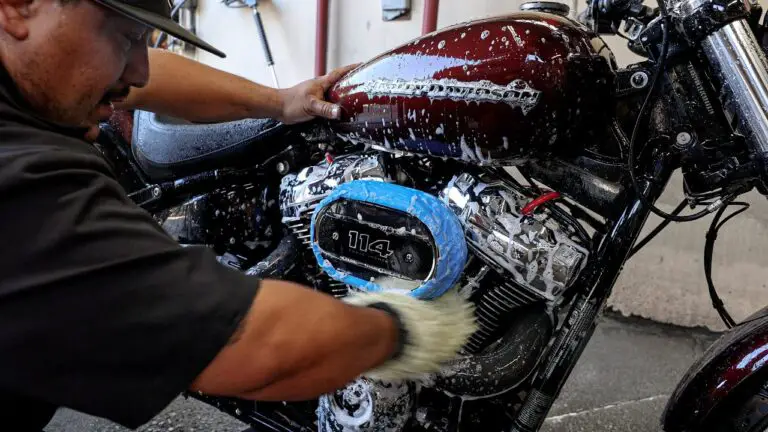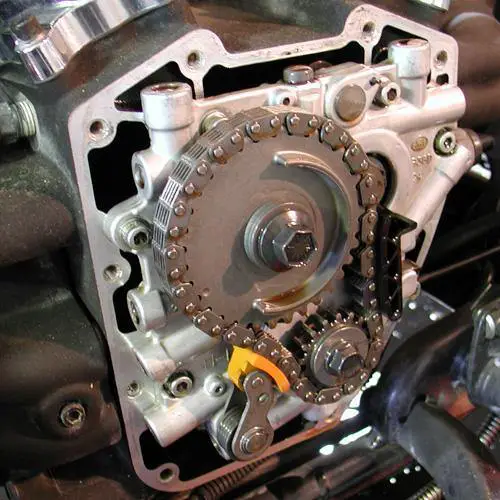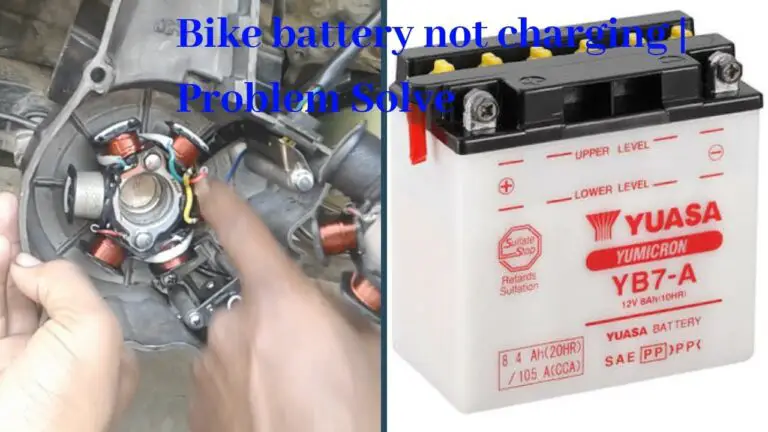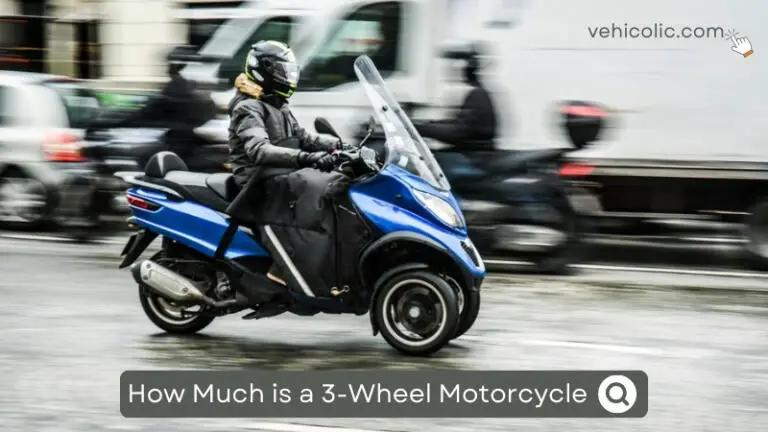Are Dirt Bikes Street Legal? How To Make Them Legal in 2025
Are you a dirt bike aficionado, curious if these powerful machines can legally hit the streets? You’ve come to the right place! Here, we’ll look at how to make dirt bikes street legal.
Dirt bikes, typically made for off-road fun, boast rugged tires and high suspension systems that take on tough terrain. But, people are increasingly using them for commuting and urban expeditions. Most dirt bikes are not street legal, however, modifications can make them comply with local traffic laws.
One way to do this is to modify the dirt bike. This involves adding headlights, taillights, turn signals, mirrors and a horn. It’s possible modifications might be needed to meet noise regulations in your city or state too. Check the official rules in your area and stick to them.
Another approach is to buy a dual-sport dirt bike. These bikes are designed for both off-road and street use. Dual-sport bikes come with most of the necessary features for street legality, and maintain their off-road skills. With a dual-sport bike, you get the best of both worlds, without modifications.
Before starting modifications or buying, research local laws. Traffic regulations vary between areas. Something accepted in one place might not be okay in another. Breaking the rules can lead to fines or even confiscation of your dirt bike.
Understanding Street Legal Requirements for Dirt Bikes
Need to make your dirt bike street legal? Check with your local Department of Motor Vehicles (DMV) to know the specific requirements. Inclusion of safety features like headlights, taillights, turn signals, mirrors, and a horn is a must. Emission regulations need to be met too. Registration and insurance might be required. Street-legal tires give better traction and grip on paved surfaces. Additional modifications could be necessary for noise reduction. Research the regulations in your region. California Air Resources Board (CARB) sets stringent emissions regulations for off-highway vehicles. Understand the requirements to enjoy riding your off-road vehicle legally. So, hop to it and make your dirt bike street legal!
Researching Local Laws and Regulations
Researching local laws and regulations is key when making a dirt bike street legal. It’s essential to understand the rules set by your area. Thorough research will make sure your modifications obey all laws.
Classifications of dirt bikes may vary in different jurisdictions. This affects their legality on public roads. Some places may let certain types of bikes with specific modifications, while others may ban them. Be aware of these classifications and any limits that may apply.
Researching local laws will also tell you what modifications to make for a legal bike. This could include lights, mirrors, turn signals, horn, and an exhaust system. Knowing this will make sure your bike meets criteria before hitting the streets.
A story from Willowville shows why research is so important. A group of dirt bike fans were charged fines and had their bikes taken by police. They hadn’t researched the law before riding. Researching and following local laws is essential when making dirt bikes street legal.
Modifying a Dirt Bike to Meet Street Legal Requirements
Modifying a dirt bike for street legal use requires some key steps. To do so, equip your bike with headlights, taillights, turn signals, & mirrors. Adjust the handlebars’ height and width to meet regulations. Obtain the necessary paperwork & permits from local transportation authority. Plus, get your modified dirt bike inspected by a certified mechanic to make sure it meets all safety standards.
Moreover, you should also install suitable tires for road riding and make sure the exhaust system complies with noise pollution regulations in your area. Note that the legalization process varies depending on each state or country’s laws & regulations. So, be prepared to work hard to make your dirt bike street legal!
Completing the Legalization Process
- Research laws and regulations around street legalization of dirt bikes.
- Gather paperwork like titles, registrations, insurance, and a street legal kit – make sure they are up to date.
- Modify your dirt bike: add safety features like mirrors, headlights, turn signals, brake lights, and a horn. Check for compliance with local laws.
- Get an inspection from an authorized mechanic or vehicle inspection facility.
- Take a rider education course or pass a written test to get a motorcycle license – if required. Know traffic laws and regulations.
- Submit documents and pay any fees at your DMV or governing body to complete the process.
Note: There may be limitations or restrictions depending on your location and circumstances.
Save money on blinkers and turn signals by using your middle finger to indicate your intent to turn.
Important Considerations and Safety Precautions
When riding dirt bikes on the street, safety is key! Considerations must be taken to ensure both the rider’s safety and legal compliance.
- Local laws need to be researched and followed.
- Wearing helmets, protective clothing, and boots can help reduce injury.
- Maintaining the bike before each ride is important for performance and safety.
Additionally, modified dirt bikes may not be street-legal. Installing turn signals, lights, mirrors, and license plates could be required.
To illustrate the importance of these measures, a friend of mine recently took his dirt bike out on the street without proper tires or protective gear. He skidded on gravel and luckily, no severe injuries occurred. However, this was a reminder of the importance of following safety precautions.
Conclusion
Creating a street legal dirt bike involves several steps. Modifying the bike, following local laws and regulations, and getting title and registration are all essential.
Adding lights, turn signals, mirrors, and a horn to the bike helps with visibility and communication with other road users. It may also require a functioning speedometer, odometer, and a license plate mount.
Obtaining a title and registration requires completing paperwork and paying fees at the DMV. Different states have different requirements or restrictions, so it’s important to check.
Insurance is also crucial for protection in case of accidents or damages. Shop around for a policy that suits your needs.
Riders must also check local laws regarding motorcycle licenses and operator requirements. Such as age restrictions or where they can ride legally.
Every state has its own regulations, so it’s best to consult local authorities or motorcycle experts.
Frequently Asked Questions
1. Are dirt bikes street legal?
Answer: No, dirt bikes are not street legal by default. They are designed for off-road use and lack the necessary features required for legal street use, such as headlights, taillights, turn signals, and mirrors.
2. How can I make my dirt bike street legal?
Answer: To make your dirt bike street legal, you need to modify it and add specific components such as headlights, taillights, brake lights, turn signals, horn, mirror, and a street-legal exhaust system. Additionally, you may need to register the bike, obtain a license plate, and meet other legal requirements specific to your location.
3. Is it legal to ride a dirt bike on the road?
Answer: It is generally illegal to ride a dirt bike on public roads. However, some states or local jurisdictions may permit dirt bikes on certain roadways under specific conditions. It is important to check your local laws and regulations to determine where and when it is legal to ride a dirt bike on the road.
4. Do I need a motorcycle license to ride a street-legal dirt bike?
Answer: Yes, to ride a street-legal dirt bike on public roads, you will need a valid motorcycle license or endorsement. The requirements for obtaining a motorcycle license vary by jurisdiction, so make sure to check the specific regulations in your area.
5. Can I convert my dirt bike into a street-legal vehicle myself?
Answer: Converting a dirt bike into a street-legal vehicle can be a complex process that involves various modifications and legal requirements. It is recommended to consult with a professional mechanic or a local licensing agency to ensure that you meet all the necessary criteria and regulations for street-legal conversion.
6. What happens if I ride a dirt bike on the road without proper street-legal modifications?
Answer: Riding a dirt bike on the road without the required street-legal modifications is illegal in most jurisdictions. If caught, you may face penalties such as fines, loss of driving privileges, impoundment of the bike, or even criminal charges depending on the severity of the violation and local laws.




